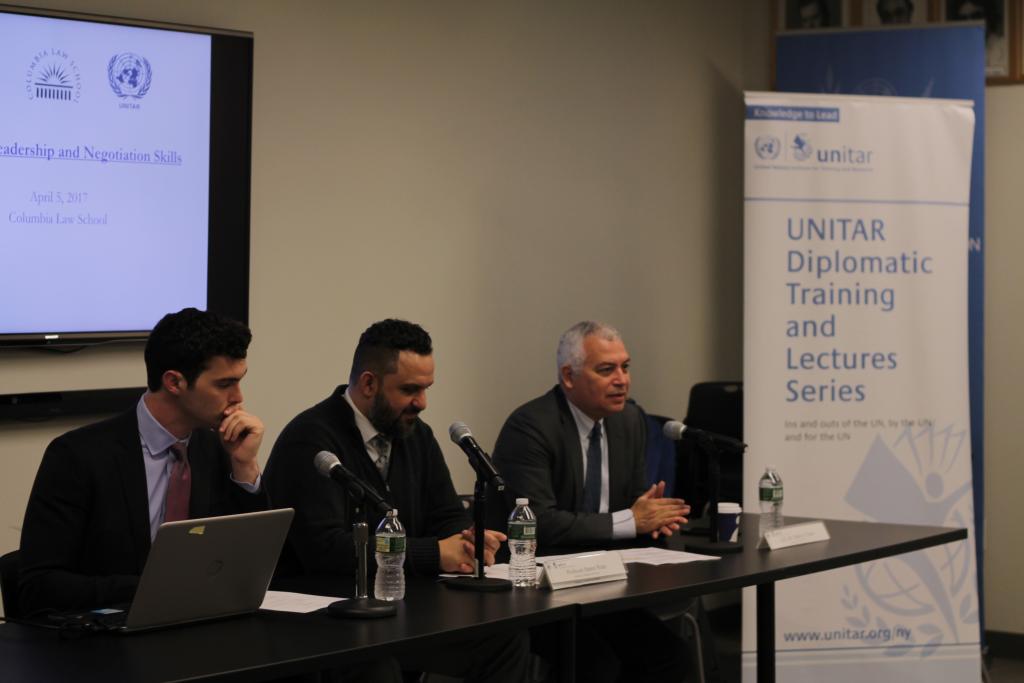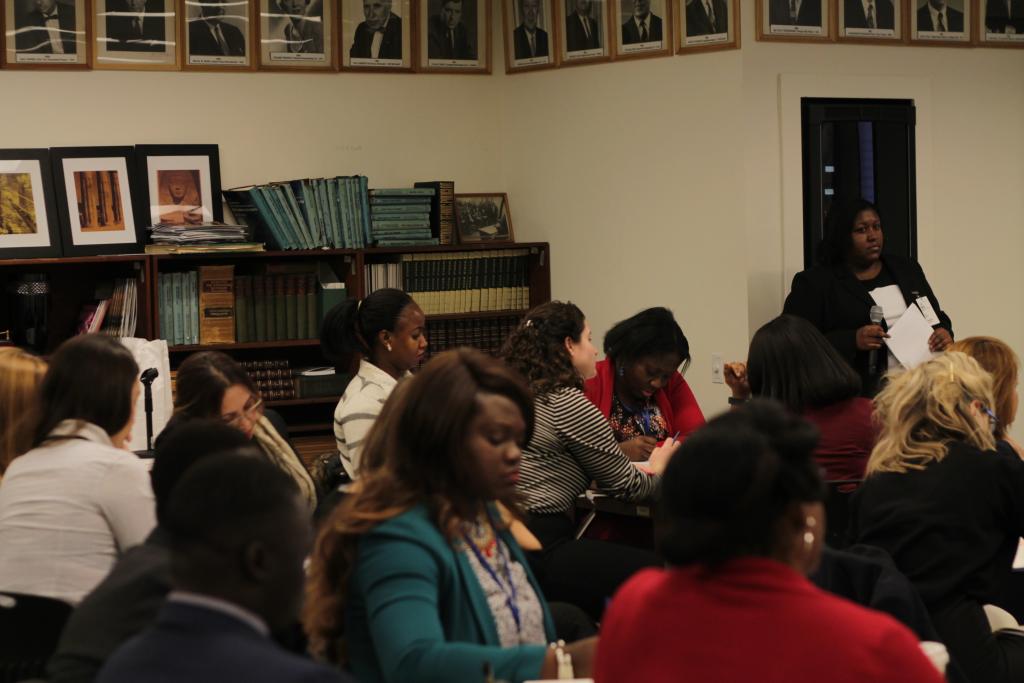UNITAR Organizes Workshop on Women’s Leadership and Negotiation Skills
 24 March 2017, New York, USA - The United Nations Institute for Training and Research (UNITAR) organized a workshop on women’s leadership and negotiation skills, which was facilitated by Columbia Law School. The workshop opened with Mr. Marco Suazo, Acting Head of UNITAR New York Office, who talked about the importance of having women in leadership roles. He mentioned that women had the innate quality to be leaders and this workshop was to help enhance that trait. He thanked the participants for coming and also thanked the Columbia Law School professors for their dedication to teaching an enlightening series of courses.
24 March 2017, New York, USA - The United Nations Institute for Training and Research (UNITAR) organized a workshop on women’s leadership and negotiation skills, which was facilitated by Columbia Law School. The workshop opened with Mr. Marco Suazo, Acting Head of UNITAR New York Office, who talked about the importance of having women in leadership roles. He mentioned that women had the innate quality to be leaders and this workshop was to help enhance that trait. He thanked the participants for coming and also thanked the Columbia Law School professors for their dedication to teaching an enlightening series of courses.
Professor Shawn Watts began the workshop by asking participants to introduce themselves. He then talked through the goals of the workshop which primarily focused on achieving gender equality (Sustainable Development Goal 5). The objectives of the workshop were threefold; to understand the relationship between Women’s leadership and the Sustainable Development Goals; to examine different methods and reasons why women should be included in negotiations; and to identify women’s strengths in real-world context negotiations.
 Participants were separated into groups and asked to perform an exercise with the purpose of identifying patriarchal structures present in society that limit female involvement in the peace processes. Participants then described their experiences of negotiation within the United Nations, citing their experiences of the various gender dynamics at play. The workshop facilitators went on to list the benefits of female involvement in the peace process which include achieving longer lasting peace agreements when women are involved in the negotiation process because research shows women were more likely to reach an agreement that benefitted all parties.
Participants were separated into groups and asked to perform an exercise with the purpose of identifying patriarchal structures present in society that limit female involvement in the peace processes. Participants then described their experiences of negotiation within the United Nations, citing their experiences of the various gender dynamics at play. The workshop facilitators went on to list the benefits of female involvement in the peace process which include achieving longer lasting peace agreements when women are involved in the negotiation process because research shows women were more likely to reach an agreement that benefitted all parties.
Participants recommended solutions for increasing female participation in peace processes, which included mentorship programmes, better education, hiring quotas and enforcing laws to increase female involvement in peace negotiations. A final interactive exercise was provided to help the participants put into practice all they had learned throughout the day. They were given a prompt and asked to negotiate in groups of four in order to reach a compromise that benefitted all parties. The workshop ended with the Columbia Law School team praising the involvement and intelligence of those present.
Photos: Participants and facilitators of the workshop

